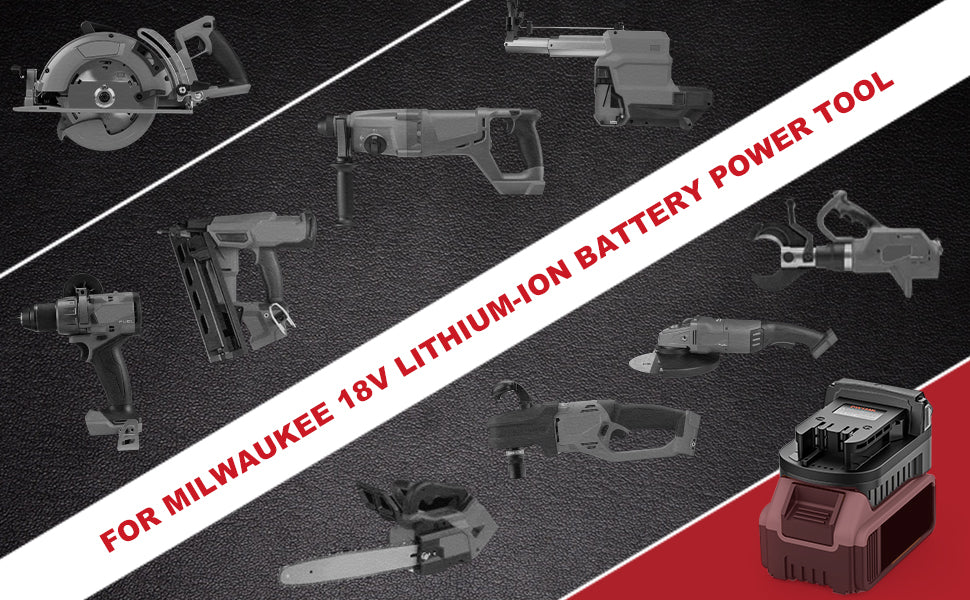
CAN YOU USE DEWALT BATTERIES ON MILWAUKEE TOOLS
If you've ever worked with both DeWalt and Milwaukee cordless tools, you've probably run into this problem: two premium brands, two powerful systems - yet their batteries refuse to work with each other. DeWalt uses its 18V/20V MAX platform, while Milwaukee relies on the M18 system. Both are lithium-ion based and deliver impressive performance, but try swapping them, and you'll quickly find they're incompatible.
So why can't these batteries work together-and is there a way around it? Let's start with the reason behind the incompatibility before we look at the solution that makes cross-brand use possible.
The Core Reason for Incompatibility: It's By Design
DeWalt and Milwaukee have each built their own proprietary battery ecosystems to ensure optimal performance and safety. Their tools and batteries communicate through unique electronic control systems that monitor temperature, current, and voltage. This means each company has intentionally designed its products to work only within its ecosystem. It's not a flaw-it's a safety measure to maintain consistent performance standards.
Still, for professionals who use tools from both brands, this lack of cross-compatibility can be frustrating. Fortunately, a smart workaround exists - DeWalt-to-Milwaukee Battery Adapter
How the DeWalt-to-Milwaukee Battery Adapter Works
At its core, a DeWalt-to-Milwaukee battery adapter is a compact power bridge designed to make two incompatible systems communicate. Inside its sturdy housing lies a set of precisely aligned electrical contacts, voltage regulators, and protective circuitry that allow a DeWalt 20V MAX battery to safely power a Milwaukee M18 tool.
When you insert the DeWalt battery into the adapter, the internal terminals connect directly to the battery's output pins, drawing the same 18V nominal power that Milwaukee tools are built to handle. The adapter's circuitry ensures that the current and voltage remain within the safe operating range of the Milwaukee tool, preventing overload or reverse polarity issues.
In practical use, the adapter performs just like a native battery interface. Slide it onto your Milwaukee tool, attach your DeWalt pack, and you're ready to go-no firmware, no modification, no extra setup. The adapter doesn't alter the power characteristics; it simply redirects and regulates them so your tool runs smoothly and efficiently.
Benefits of Using an Adapter
-
Cost Savings: Skip buying extra Milwaukee batteries when you already have plenty of DeWalt packs on hand.
-
Convenience: Less clutter in your toolbox -you can bring one type of battery for multiple brands.
-
Sustainability: Using existing batteries reduces waste and extends the lifespan of your current setup.
- Flexibility on the Job: If your Milwaukee battery runs out mid-project, you can quickly pop in a DeWalt pack using the adapter and keep working.
DeWalt and Milwaukee batteries may never be directly compatible - and that’s by design. But with a reliable battery adapter, you can bridge the gap between the two systems and get the best of both worlds. It's a simple, affordable solution that turns brand barriers into opportunities for flexibility, efficiency, and smarter tool use on any job site.






